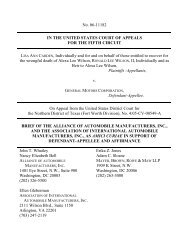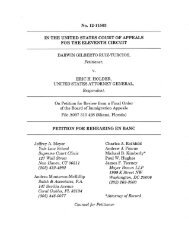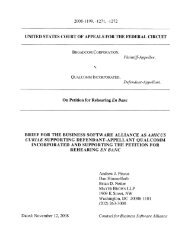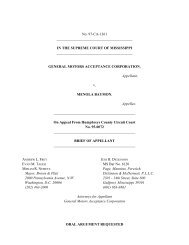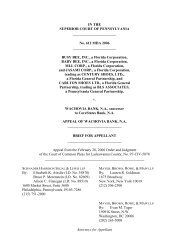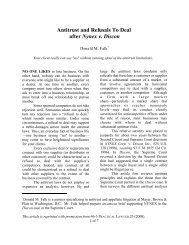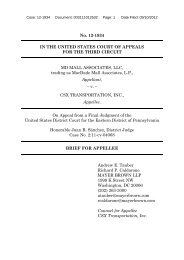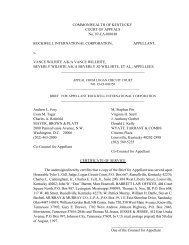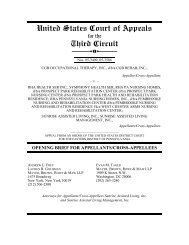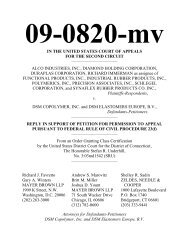No. 5-99-0830 IN THE APPELLATE COURT OF ... - Appellate.net
No. 5-99-0830 IN THE APPELLATE COURT OF ... - Appellate.net
No. 5-99-0830 IN THE APPELLATE COURT OF ... - Appellate.net
You also want an ePaper? Increase the reach of your titles
YUMPU automatically turns print PDFs into web optimized ePapers that Google loves.
eflected a policy of “discrimination” in favor of luxury cars, and asked “why” State Farm<br />
would discriminate if non-OEM parts were really as good as OEM parts. R. 4447. Ryles<br />
interpreted this memo as showing State Farm’s belief that “some policyholders are created<br />
more equal than others.” R. 4783. Hunter testified that the discrimination supposedly<br />
documented in the memo confirmed that non-OEM parts are inferior. R. 6394-95.<br />
State Farm called Bill Hardt, the author of the memo, as a witness to answer<br />
plaintiffs’ rhetorical question as to “why” the memo was written. Hardt was about to do so<br />
when plaintiffs objected on the ground that “the document speaks for itself.” R. 9262-65.<br />
Even though Ryles and Hunter had opined about what the document meant without any<br />
personal knowledge whatsoever, the court made the astonishing ruling that Hardt — who<br />
wrote the document — could not explain what he really meant. Id. 45/<br />
Second, the circuit court also abused its discretion by allowing plaintiffs to make<br />
arguments and offer evidence impugning State Farm’s character and motives in specifying<br />
non-OEM parts, while at the same time prohibiting State Farm from telling the jury why it<br />
had adopted a policy of specifying non-OEM parts. Prior to trial, the circuit court precluded<br />
State Farm from offering any evidence to show that its practices with respect to non-OEM<br />
parts were motivated by a desire to hold down repair costs and thereby allow State Farm to<br />
hold down premiums and increase dividends. C. 28974. State Farm was not allowed to<br />
45/<br />
In an offer of proof, Hardt explained that he distinguished between a pick-up truck<br />
and a Mercedes because non-OEM parts are more available for pick-ups (which have a<br />
relatively high market share) and are therefore “tried and tested” and likely to be of higher<br />
quality than non-OEM parts for a Mercedes. R. 9478-80. Hardt, who has driven a pick-up<br />
truck for 35 years, R. 9267, stated that he in no way intended to discriminate based on<br />
wealth. R. 9478-80.<br />
-101-



